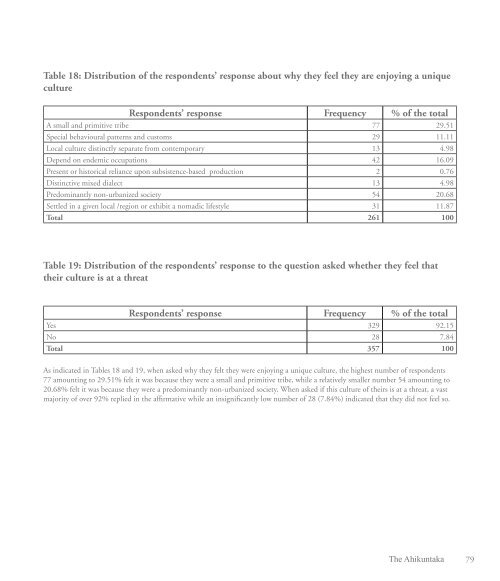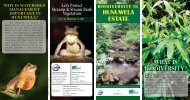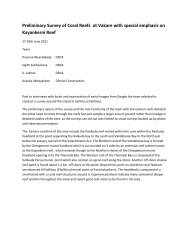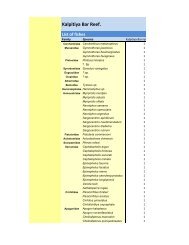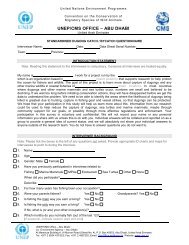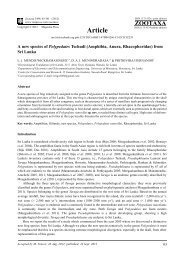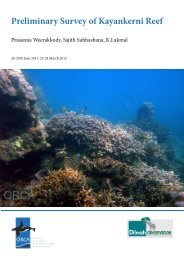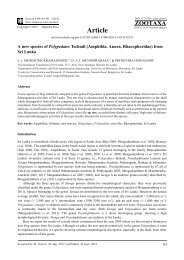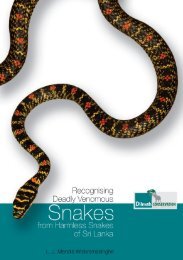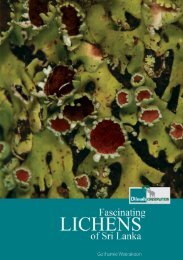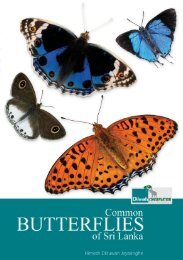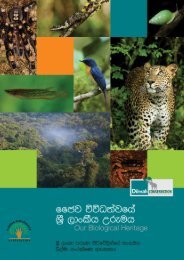The Ahikuntaka
A publication documenting the lives and livelihoods of the Ahikuntaka or gypsy community in Sri Lanka. A collection of vibrant photographs and a baseline survey on the current socio economic status of the Ahikuntaka conducted by the Colombo University complement this timely publication.
A publication documenting the lives and livelihoods of the Ahikuntaka or gypsy community in Sri Lanka. A collection of vibrant photographs and a baseline survey on the current socio economic status of the Ahikuntaka conducted by the Colombo University complement this timely publication.
Create successful ePaper yourself
Turn your PDF publications into a flip-book with our unique Google optimized e-Paper software.
Table 18: Distribution of the respondents’ response about why they feel they are enjoying a unique<br />
culture<br />
Respondents’ response Frequency % of the total<br />
A small and primitive tribe 77 29.51<br />
Special behavioural patterns and customs 29 11.11<br />
Local culture distinctly separate from contemporary 13 4.98<br />
Depend on endemic occupations 42 16.09<br />
Present or historical reliance upon subsistence-based production 2 0.76<br />
Distinctive mixed dialect 13 4.98<br />
Predominantly non-urbanized society 54 20.68<br />
Settled in a given local /region or exhibit a nomadic lifestyle 31 11.87<br />
Total 261 100<br />
Table 19: Distribution of the respondents’ response to the question asked whether they feel that<br />
their culture is at a threat<br />
Respondents’ response Frequency % of the total<br />
Yes 329 92.15<br />
No 28 7.84<br />
Total 357 100<br />
As indicated in Tables 18 and 19, when asked why they felt they were enjoying a unique culture, the highest number of respondents<br />
77 amounting to 29.51% felt it was because they were a small and primitive tribe, while a relatively smaller number 54 amounting to<br />
20.68% felt it was because they were a predominantly non-urbanized society. When asked if this culture of theirs is at a threat, a vast<br />
majority of over 92% replied in the affirmative while an insignificantly low number of 28 (7.84%) indicated that they did not feel so.<br />
<strong>The</strong> <strong>Ahikuntaka</strong><br />
79


